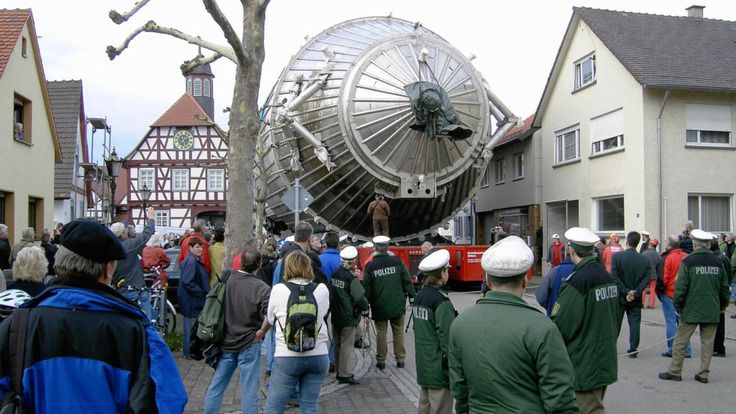
"Scientists modified the beam of neutrinos traveling through the Earth from CERN to INFN. Image: Jean-Luc Caron
The OPERA experiment’s surprising superluminal neutrino result is holding fast after a new measurement designed to eliminate a possible source of systematic error from their previous tests.
OPERA scientists reported the new results in a press release and a paper released on the arXiv today.
“The positive outcome of the test makes us more confident in the result,” said Fernando Ferroni, president of the Italian Institute for Nuclear Physics. But “a final word can only be said by analogous measurements performed elsewhere in the world.”
Accordingly, OPERA and other experiments, including Fermilab’s MINOS and KEK laboratory's T2K, will continue collecting data in the coming year.
OPERA scientists first presented their neutrino measurement on Sept. 23. The experiment measures the velocity of particles as they arrive at detectors at Gran Sasso National Laboratory in Italy from 730 kilometers away at CERN in Geneva, Switzerland. September’s baffling results showed the neutrinos arriving in Italy 60 nanoseconds before light, a feat that seemed to break the laws of physics. Theorists have not been able to explain how the result could be true, but experimentalists have not been able to explain how it could be false.
For the new measurement, CERN operators spaced particle bunches in the neutrino beam farther apart by as much as 524 nanoseconds and sent them to Italy in short, three nanosecond pulses. This allowed OPERA physicists to trace neutrinos measured at the final destination back to the exact pulse from which they came. Last time the neutrino bunches were so close together that physicists had to rely on statistics to determine which one corresponded to each observed neutrino. The new arrangement got rid of at least this source of potential fuzziness.
Although this narrower, sparser beam led to more accurate definitions of the particles’ velocities, it also meant that physicists had fewer events to observe overall. In fact, OPERA measured only 20 events this way – one reason the collaboration will need more measurements before concluding anything with certainty.






